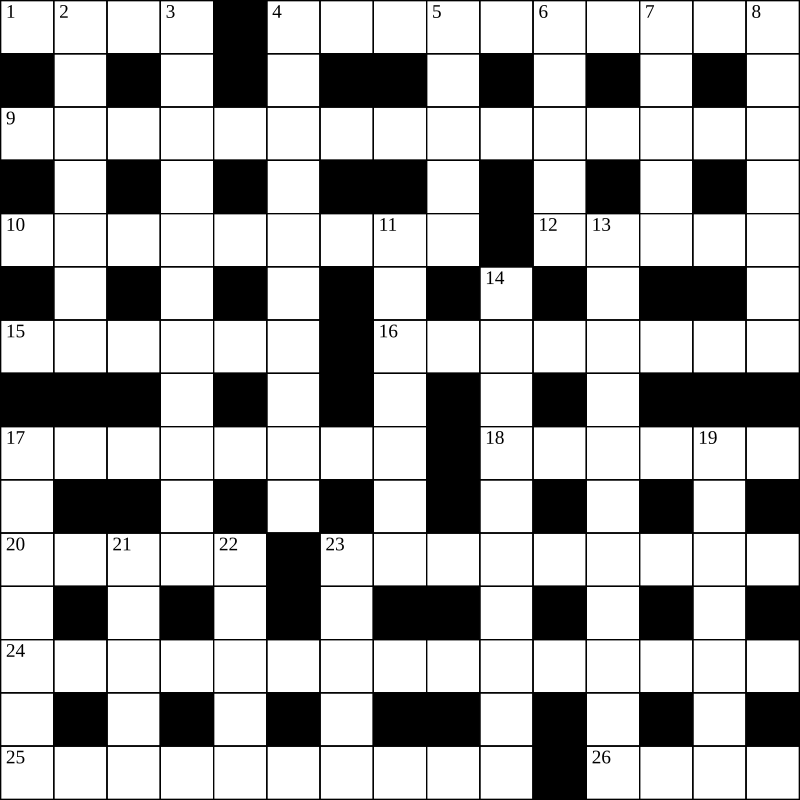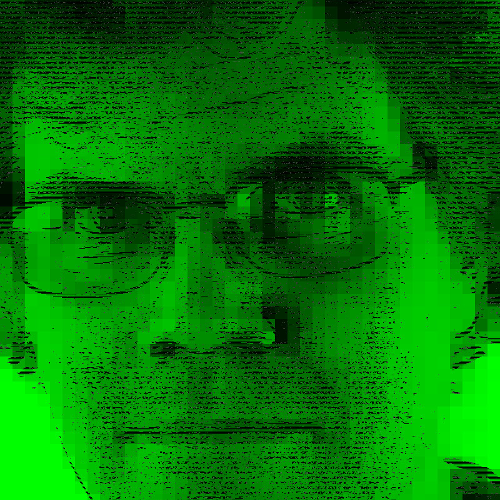A few months back, I played in SFPursuit, a San Francisco challenge hunt. Uhm, where "challenge hunt" is a phrase I made up just now for "Something like a puzzlehunt, but most of the activities aren't puzzle-y, but they are still challenging." One of the activities involved looking over a physical book that had been created for the hunt. A few bookstores across San Francisco had one copy each of the special book. Each player's phone directed them to the nearest such bookstore. There, they could find the special book, gather data from it, solve the book's riddle, and enter the answer on their phone to complete the challenge.
Thus I found myself in Fabulosa Books, negotiating with fellow hunt enthusiasts to snap pictures of the pages from a false birdwatching guide. Unsurprisingly to anyone who's participated in such events, everyone was very focused on solving the riddle; nobody bought any books.
I remembered back to when I helped run 'Terngame 2012 for Twitter interns. I'd set up one puzzle at Isotope Comics and then watched over the puzzle, in case any interns needed help solving it. All of the interns were hyperfocused on the puzzle; none of them dawdled in the store after solving to browse or buy. I felt pretty sheepish for having asked the store's propietor to let me set up the puzzle there. I might as well have used a conference room back at company HQ.
That's what was on my mind when I bought a book at Fabulosa. Oh? What's that you say? What did I think of the book?
In the novel The Fellowship of Puzzlemakers, the protagonist goes on a quest of self-discovery. He's been given a crossword puzzle; he's been instructed to seek out the answers to the puzzle along his journey. So one of the answers might be BEAUTY and the protagonist might encounter a really-nice sunset and contemplate its BEAUTY. And everyone reading the book is nodding "Yep, I saw that BEAUTY when I first solved the crossword, and now here we encounter it in the story; this whole story is satisfyingly interwoven."
The puzzle's kinda weird, tho. The book takes place in England, most of the characters are English. But the central-theme crossword puzzle uses American-style definition clues, not British-style cryptic clues. The book explains the reason thusly: The protagonist doesn't think of himself as smart enough to solve cryptic clues; the quest-giver knew this, and wanted the puzzle to be solve-able. But but cryptic clues are just a small part of why British-style puzzles can be difficult. A much bigger problem is that their grids are "sparse"; not every square is part of of an across-word and a down-word. In an American-style puzzle, if you don't know the across answer, the first name of whazzerface Świątek you might still be OK: Maybe you'll know the down-answers that intersect. But in a British-style grid, even if you have all the intersecting answers, you don't have all the letters.

A British-style crossword grid from Wikipedia
Maybe you're looking at S□A□E and you're not sure whether it's SCALE, SHADE, SHAKE, SHAME, SHAPE, SHARE, SLATE, SNAKE, SPACE, SPARE, STAGE, STATE, or what-have you. If the clue is British-cryptic-style, you have some hope: the clue has two halves: one definition, one wordplay. If the definition is so vague that you're not sure whether the answer is SHAPE or SPACE, probably the wordplay will clear things up. (oh, a "change" of phase, ok)
So… our not-amazing-puzzler protagonist has to solve a crossword in a British-style grid and doesn't have an answer key, so he has to just hope that he picked the right words, that □E□T□E might be CENTRE or KETTLE…
Also, one of the crossword clues is wrong: it points you at a noun, but the answer is the verb form of that noun. It's weird that one clue was wrong. In a novel structured around a crossword, I either expect no mistakes (a puzzle nerd trying their hand at novel-writing) or many mistakes (a novelist who doesn't know the rules of crosswords but nevertheless wants to incorporate one).
Here's my best hypothesis: The author's first draft of this novel used a British-style crossword with cryptic clues. The author was delighted when an American publisher picked up the novel: His work would reach a big audience! But the publisher imposed a condition: Those cryptic clues had to go; you couldn't expect Americans to understand them. The author, gnashing his teeth at this slight to his culture, swapped out his cryptic clues for grudgingly-written defintion-clue replacements, not noticing that he'd messed one of them up.
Oh? What's that you say? What did I think of the book?
It was OK. It did a great job of structuring the story around the crossword. If the crossword had been a mistake-less cryptic, maybe I'd be calling this book masterful.
